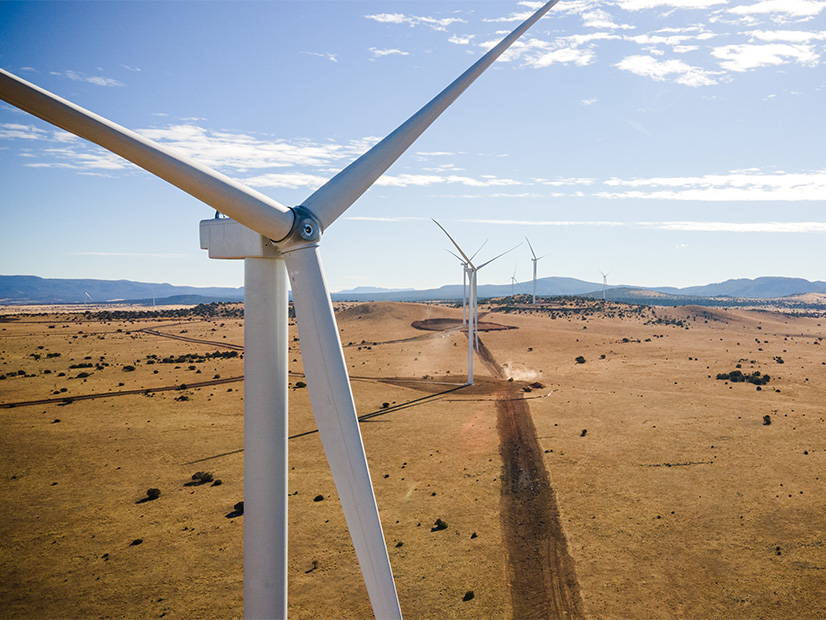In a reversal of a decision last year, Arizona regulators voted last week to reject a set of energy rules that would have required the state’s electric utilities to cut carbon emissions 50% by 2032 and 100% by 2070.
The Arizona Corporation Commission (ACC) voted 3-2 on Wednesday to reject the energy rules. Commissioners Anna Tovar (D) and Sandra Kennedy (D) voted in favor of the rules, while commissioners Jim O’Connor (R) and Justin Olson (R), along with Chairwoman Lea Marquez Peterson (R), voted against them.
The vote is a reversal of the commission’s 3-2 vote in May to advance the rules, with O’Connor changing his vote. Because the rules approved in May incorporated substantial amendments, they needed to go through further rulemaking and return to the commission for a final vote.
O’Connor said on Wednesday that he supports clean energy but questioned whether the energy rules are needed.
“I have concluded that the utilities are serious and sincere with their commitment to clean energy,” O’Connor said. “I concluded they do not need these state-level energy rules at this time, which impose risks for ratepayers.”
‘Flip-Flop’ Criticized
Tovar chastised fellow commissioners who “flip-flopped” on the energy rules, “wasting hundreds of hours of staff time” as a result. The energy rules have been in the works for years, received thousands of public comments and are supported by a wide range of stakeholders, including utilities and energy industry companies, she said.
“We as commissioners should be ashamed that all of this painstaking effort was in vain, because we let politics get in the way of what is right,” Tovar said.
In November 2020, Marquez Peterson was one of four commissioners who voted in favor of starting the formal process to adopt a proposed rule that would require electric utilities to eliminate their carbon emissions by 2050.
But Marquez Peterson later said that she opposed mandates for reducing carbon emissions, saying such requirements would give utilities a “blank check” for recovering costs associated with the mandates.
When the energy rules came to the commission for a vote on May 5, 2021, Olson proposed an amendment to make the carbon-reduction targets voluntary. The amendment passed with votes from three commissioners — Olson, O’Connor and Marquez Peterson.
But when the amended rules went up for a vote, Olson voted “no.” The rules failed with Olson, Tovar and Kennedy opposed. (See Ariz. Regulators Kill Clean Energy Proposal.)
Later that month, Kennedy asked for a reconsideration of the rules. During a meeting on May 26, 2021, the commission accepted an amendment proposed by Tovar and O’Connor, which gave utilities until 2070 to reach 100% carbon-free emissions. Interim standards included a 50% reduction by 2032, a 65% reduction by 2040, an 80% reduction by 2050, and a 95% reduction by 2060.
The rules also included requirements for energy efficiency and energy storage.
The amended energy rules, with the 2070 deadline for eliminating carbon emissions, were approved on May 26 with a 3-2 vote. Marquez Peterson and Olson were opposed. (See Arizona Regulators Revive Clean Energy Rules.)
Utility Commitments
Marquez Peterson said Wednesday that when commissioners voted on early drafts of the rules, they knew it wasn’t the final vote.
She said that she supports 100% clean energy by 2050 as a goal. And now, she said, for-profit utilities have “adopted voluntary clean energy commitments on their own.”
“With their voluntary commitments, I believe we’ve entered into a new chapter and a transition to clean energy,” Marquez Peterson said.
In addition, she said, a report on the costs of a clean-energy mandate came out after the commission’s May vote.
An analysis by Ascend Analytics found that monthly electric bills would be $8 to $35 higher in 2050 if utilities provided 100% clean energy by then. The difference in cost, which varies by utility, is in comparison to a “least-cost” scenario. (See Report Projects Ariz. Ratepayer Costs for Going Clean.)
In a statement on Thursday, Marquez Peterson listed some examples of utilities’ commitment to clean energy. In January 2020, APS announced a goal of providing 100% clean, carbon-free electricity to customers by 2050.
In its 2020 integrated resource plan, Tucson Electric Power (TEP) said it would provide more than 70% of its power from renewable sources by 2035 and reduce carbon emissions by 80%.
TEP said in January that it brought three large clean-energy systems online in 2021. They are the 250 MW Oso Grande Wind Project near Roswell, N.M.; Wilmot Energy Center, which consists of a 100 MW solar array and 30 MW of battery storage near the Tucson International Airport; and the Borderlands Wind Project near the Arizona-New Mexico border, which includes 34 turbines producing a combined 99 MW.
Business Impact
Groups supporting clean energy reacted with disappointment to ACC’s decision to reject the energy rules.
“Strong, predictable clean energy standards are crucial for helping Arizona attract new businesses and build a booming job market for years to come,” said Shelby Stults, Arizona policy lead at Advanced Energy Economy, a national business group. “Abandoning this rules package takes Arizona’s economic and advanced energy growth drastically off course.”
Adam Stafford, Western Resource Advocates’ senior staff attorney in Phoenix, said that ACC must now find a new path forward for addressing the climate crisis.
“The power sector provides some of the most cost-effective opportunities to reduce climate pollution,” Stafford said in a release. “Arizona’s largest utilities have all said they want the regulatory certainty of a firm emissions reduction standard, and the business community has voiced support for that, as well.”




